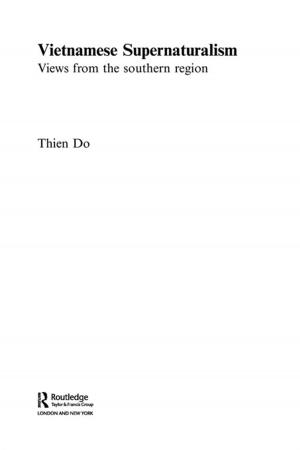Relational Models Theory
A Contemporary Overview
Nonfiction, Health & Well Being, Psychology, Interpersonal Relations| Author: | ISBN: | 9781135645762 | |
| Publisher: | Taylor and Francis | Publication: | September 22, 2004 |
| Imprint: | Psychology Press | Language: | English |
| Author: | |
| ISBN: | 9781135645762 |
| Publisher: | Taylor and Francis |
| Publication: | September 22, 2004 |
| Imprint: | Psychology Press |
| Language: | English |
Relational models theory, first developed by Alan Page Fiske, an anthropologist, provides a framework for understanding the psychological bases of social behavior that has in recent years attracted the interest of a diverse and growing group of behavioral and social scientists. It proposes that human activities are structured in accordance with four fundamental models--communal sharing, authority ranking, equality matching, and market pricing--different permutations of which guide thought and behavior in every domain of social life in all cultures. Just as children are biologically programmed to learn language, so are they prepared to recognize the models, which enable human beings to plan and generate their own action; to understand, remember, and anticipate that of others; to coordinate collective action and institutions; and to make moral judgments.
This book offers a critical introduction to contemporary relational models theory and illustrates the ways in which it has illuminated a wide range of interpersonal phenomena and stimulated research on individual psychology, collective behavior, and culture. Using methodologies that range from experimental to ethnographic, the authors--leading developmental, social and clinical psychologists, anthropologists, and specialists in organizational behavior and management--discuss the relational foundations of social cognition, the forms of action that create relationships in diverse cultures, perceptions of fairness and justice in families and organizations, emotions and values, moral outrage, interpersonal conflict, and emotional and personality disorders.
Relational Models Theory lays out challenges to all who study interpersonal relationships and social processes in varying contexts, and points directions for future work.
Relational models theory, first developed by Alan Page Fiske, an anthropologist, provides a framework for understanding the psychological bases of social behavior that has in recent years attracted the interest of a diverse and growing group of behavioral and social scientists. It proposes that human activities are structured in accordance with four fundamental models--communal sharing, authority ranking, equality matching, and market pricing--different permutations of which guide thought and behavior in every domain of social life in all cultures. Just as children are biologically programmed to learn language, so are they prepared to recognize the models, which enable human beings to plan and generate their own action; to understand, remember, and anticipate that of others; to coordinate collective action and institutions; and to make moral judgments.
This book offers a critical introduction to contemporary relational models theory and illustrates the ways in which it has illuminated a wide range of interpersonal phenomena and stimulated research on individual psychology, collective behavior, and culture. Using methodologies that range from experimental to ethnographic, the authors--leading developmental, social and clinical psychologists, anthropologists, and specialists in organizational behavior and management--discuss the relational foundations of social cognition, the forms of action that create relationships in diverse cultures, perceptions of fairness and justice in families and organizations, emotions and values, moral outrage, interpersonal conflict, and emotional and personality disorders.
Relational Models Theory lays out challenges to all who study interpersonal relationships and social processes in varying contexts, and points directions for future work.















